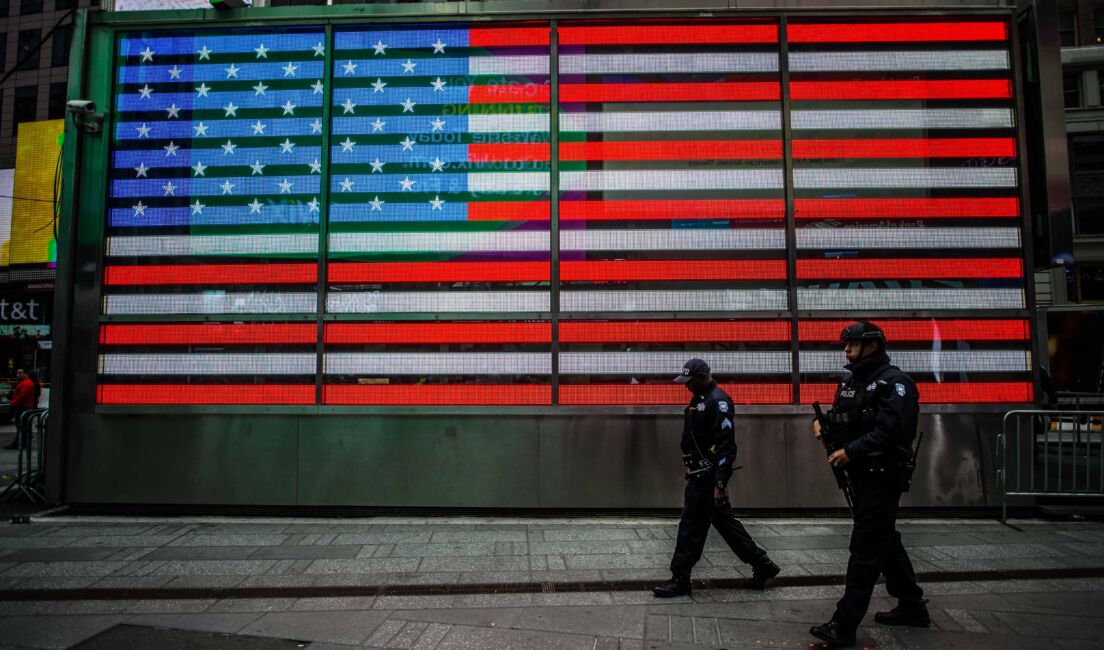Civility in the face of fear, qualified immunity, and 5 more links worth your time
Police Reform

As protests move into a third week and spread across the globe, discussions about police reform are also increasing in variety and frequency. City council members in Minneapolis have pledged to “dismantle” the city’s police department; there are calls for defunding the police; Congress will consider “sweeping policing reforms” via federal legislation; and, in one major American city, police have completely withdrawn from a six-block downtown area which is now occupied by protesters.
Civil discourse is challenging in the face of fear
Whether you are disappointed by these developments or you applaud them, it’s clear that there are many people in this country who are worried about their safety. When people are afraid, it can be challenging to have a civil conversation about policy proposals.
Like a lot of divisive issues, law enforcement reform is more complicated than headlines, sound bites, and social media would have us believe. Most reform proposals have been under consideration for a lot longer than three weeks. In this issue, we’re using our 5 links to share news and resources as background about proposed reforms.
Finding common ground as a starting point
The best place to begin a discussion of a contentious issue is on common ground, however limited that might be. There is one area of law enforcement reform proposals where some agreement exists among those who are rarely aligned (including one of the most liberal and one of the most conservative judges on the Supreme Court): qualified immunity.
It’s a subject that has been in the news recently, including a bipartisan bill introduced in Congress, and just yesterday, the Supreme Court decided not to hear several cases that challenge the doctrine. But what is qualified immunity?
Qualified immunity
The argument for qualified immunity goes something like this: police have an important job to carry out in society. Sometimes, that job means they will have to enforce laws in ways that may make the subject of that enforcement unhappy to the point where he or she sues the officer (or other government official – qualified immunity also covers officials other than just police) to claim damages.
If police are afraid of getting sued for doing their jobs, they might be less enthusiastic about performing their duties. Thus, in 1967, the Supreme Court ensured that the standard for holding police responsible for violations of civil rights was very high. A plaintiff who sues government officials must demonstrate both that his or her civil rights were violated and that the defendant has also violated “clearly established law.” While that might seem reasonable, critics argue that this puts a nearly impossible burden on the plaintiff because, as Judge James Wynn wrote last week in an op-ed for the Washington Post:
This means a plaintiff must demonstrate that the law enforcement officer’s challenged conduct was virtually identical to the facts of a previous Supreme Court or Court of Appeals decision finding a constitutional violation. The slightest factual variations can render a constitutional right not “clearly established” – meaning that the officer faces no civil liability for the violation.
Critics argue that qualified immunity absolves police officers and other government officials of accountability, and history seems to bear this out (see link 4 below for a list of egregious behavior protected by the qualified immunity doctrine). That’s a serious concern in a free society, and it’s certainly a subject worthy of thoughtful discussion.
5 more links worth your time
- Supreme Court Will Not Reexamine Doctrine That Shields Police in Misconduct Suits, NPR – Yesterday, the Supreme Court declined to hear qualified immunity cases that had been on its conference list for several months. This article notes the “unusual ideological alliances” around this doctrine, both on the court and among those who have filed briefs in these cases.
- Unlawful Shield, Cato Institute – This web project includes updates on qualified immunity in the news, summaries of court cases that challenge the doctrine, and resources to learn more.
- Police Reform? Here are Past and Future Ideas, Libertas Institute – A think tank in Utah has pursued law enforcement reform in their state for the past nine years. This provides a summary of their successes and ten ideas for future reform.
- Three Specific Ways to Fix Bad Policing, Institute for Justice – A public interest law firm provides three suggestions (including the end of qualified immunity) to “end long-running policies that incentivize bad behavior and break down trust between the police and the public.”
- Imagining a World Without Qualified Immunity, Part I, Reason – While many Americans are just learning about qualified immunity for the first time as a result of recent events, it is a doctrine that has held the attention of legal scholars for years. Here, Professor Joanna Schwartz of UCLA begins a four-part series on what abolishing qualified immunity might mean. You can find the full series (and another from 2018) here.
p.s. If you’ve got a political, ideological, or philosophical issue you’ve been considering, email me at jennifer@civilsquared.org and I’ll work with my team to put together a list of articles, issues, and interesting points of view to share with you and others.